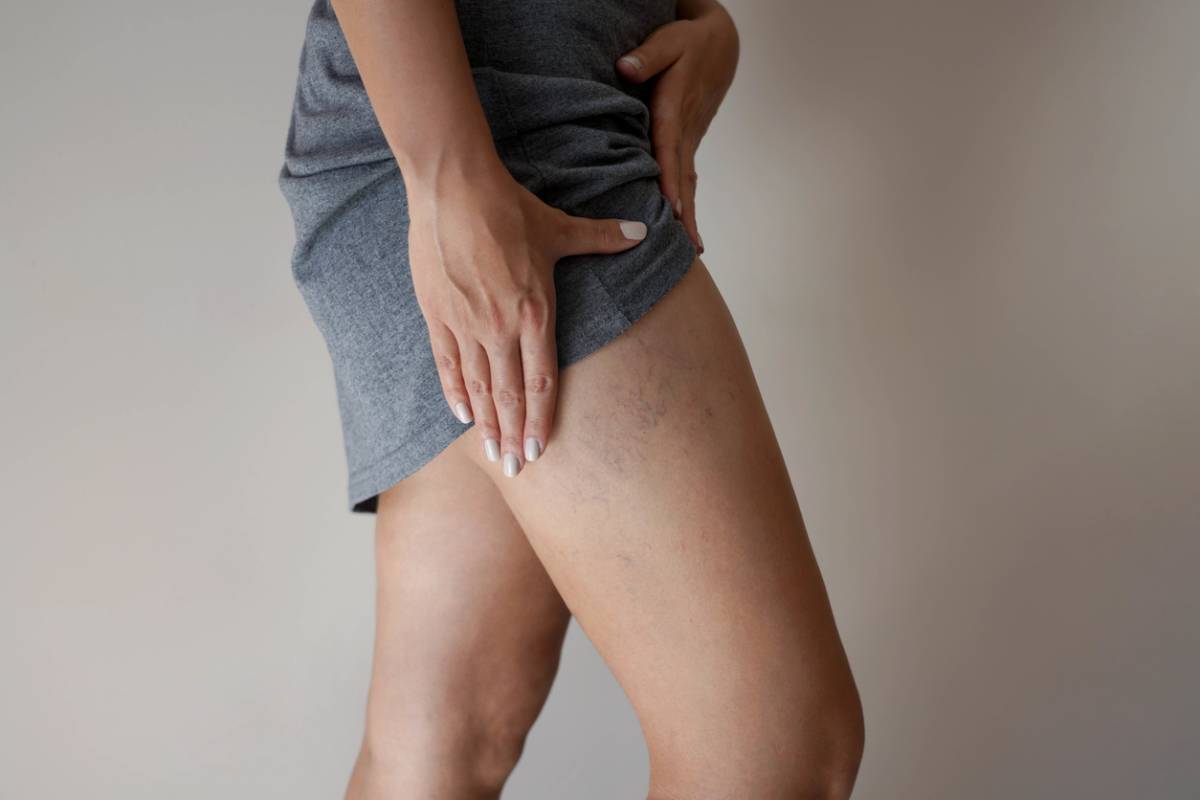Do Veins Grow Back?
Many people become dissatisfied with the appearance of their veins on the surface of their skin, most commonly on their legs. Most of us value how our skin looks, as it’s the first thing visible to others. For that reason, those who are really bothered by the discomfort and by how their veins look may decide to get varicose vein treatment. If you are considering this option, you may be unsure about what happens after treatment. Specifically, it is natural to worry and wonder, “Do veins grow back?” In this article, we will discuss how long your treatment results can last!
What Are Varicose Veins?
First, let us define varicose veins. These are veins that are swollen, enlarged, or twisted in shape and appear on the surface of the skin. Most of the time, varicose veins are present in the legs. Because of faulty valves, the blood in the veins is not adequately returned back to the heart and instead pools in the vein. The pooling of blood is what leads to the bulging and swollen appearance of the veins under the skin.
More than just a cosmetic concern, varicose veins can have associated symptoms as well, such as pain, heaviness, swelling, and more. For comfort, health, and the added cosmetic benefit, people often seek treatment.
What Happens During Varicose Vein Treatment?
Now, let us break down different kinds of treatment, and how they alter your veins:
- Sclerotherapy: In order to close the vein, a solution is injected into it which causes it to scar and subsequently close.
- Endovenous laser treatment (EVLT) or radiofrequency ablation (RFA): Heat is applied to seal the vein shut.
- Vein stripping or ligation: The damaged vein is removed or tied off surgically.
- Phlebectomy: Through tiny incisions, small sections of the vein can be removed.
If you look a little closer, you will notice that all these procedures have a common goal: to either remove completely or close off the vein, so blood can be routed through healthier veins. Through these procedures, your varicose veins are basically removed from the body’s circulation.
So… Do Veins Grow Back?
The short answer is that the exact same vein that was closed or removed will not grow back.
That being said, it is possible for new veins to grow in the same spot, or for nearby veins to become varicose over time. What this can mean is the underlying issue that caused the varicose vein to begin with (pressure in the leg veins or weak vein valves) might still be affecting the patient.
There are some cases in which a treatment may only be partially effective. In these instances, if the vein does not fully close, blood can flow through it again. So, this is less likely if follow-up sessions are completed for a procedure that may require it (sclerotherapy).
Why Do New Varicose Veins Sometimes Show Up?
Here are some reasons why you may notice new varicose veins, even after successful treatment:
- Genetics: You are more likely to develop new varicose veins if it runs in your family.
- Age: As we age, veins and their valves weaken naturally.
- Lifestyle: A lack of exercise, weight gain, or sitting and standing for long periods can increase the pressure on your veins.
- Pregnancy: Hormonal changes and increased blood volume can cause veins to get bigger.
The symptoms associated with new veins growing back can feel similar to the original vein that was treated. So it is important to maintain regular follow-ups with your provider.
What You Can Do to Keep Veins Healthy
After vein treatment, you may be able to avoid the growth of new varicose veins by adopting habits that take care of your circulatory system, such as the following:
- As recommended by your doctor, wear compression socks.
- Exercise regularly. Consider low-impact options like walking or swimming!
- Avoid long periods of sitting or standing.
- When you are resting, elevate your legs to stimulate blood flow back to the heart.
- Maintain a healthy weight.
At any point, if you notice changes in your legs, such as new veins, pain, or swelling, be sure to check in with your doctor!
When to Talk to a Specialist
Have you had had varicose vein treatment in the past and are noticing new symptoms? Or are you starting to explore your options? Either way, it is a good idea to schedule a consultation. Getting an opinion to check on your health can help you be proactive and understand the best plan for you. Stop by our clinic for a visit with a cardiovascular specialist who can take a look at your veins!

Leave a Reply